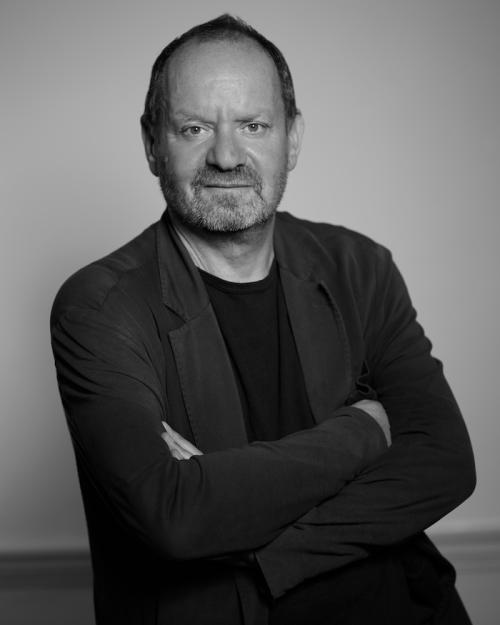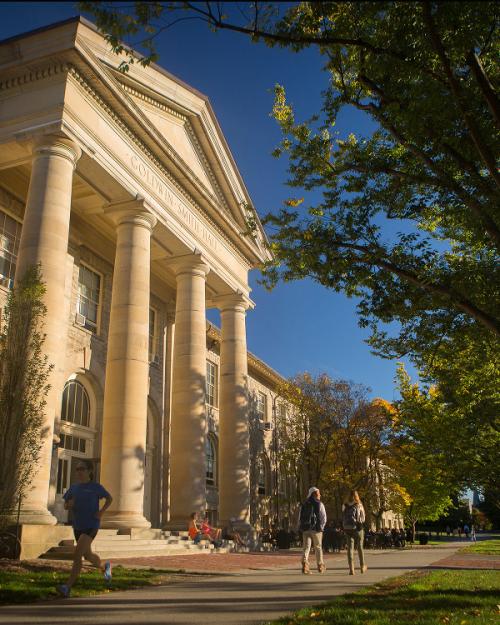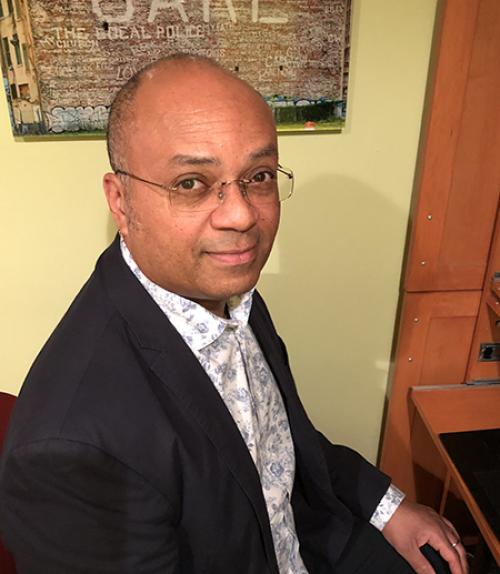As Phillip Brian Harper M.F.A. ’85, M.A. ’86, PhD ’88 considers taking on a new job, he always asks himself a couple of questions: Could I have an even greater impact in this new role? Do I have something to contribute to this conversation that no one else does?
In his newest position as Program Director for Higher Learning at the Andrew W. Mellon Foundation, which he began Oct. 1, Harper will play a key role in guiding foundation grants to colleges and universities throughout the country, particularly focused on humanities and the liberal arts. And now, with the Foundation’s new emphasis on social justice and equity, the projects the foundation supports have a newly refined mission.
“The humanities are the story of the way that human beings have negotiated the circumstances they find themselves in,” Harper said. “While some people think that Mellon’s new mission represents a narrowing of focus, I see it as an opening, a reinvigoration of what the humanities are at their core.”
Much of Harper’s growth as a literary theorist and scholar took place at Cornell, where he earned an M.F.A. in creative writing, as well as his M.A. and doctoral degree in English. Having always thought of himself as a poet, it was at Cornell where he pivoted to a focus on literary and cultural theory, studying under Henry Louis Gates.
“My sister was 10 years older than me, so she started college in 1969 and came home with books and pamphlets related to the black power movement and poetry by black art poets,” he said, adding that he read them even at 8 years old. “I was very precocious,” he said with a laugh. “Anyway, I started writing poetry and kept on writing it all the way through high school.”
After graduating from the University of Michigan with a degree in creative writing and literature, Harper worked for a couple of years, still writing poetry on the side, before deciding to apply to graduate programs, figuring one way to make a living as a poet was to teach. Cornell offered both an MFA and PhD combination, so he applied, was accepted and headed to Ithaca in the fall of 1983.
“I was looking forward to being with other students who thought the same way I did,” he said, but he soon discovered that his peers had much more experience with literary theory than he did. “I was really straining to figure out what language these other people were speaking. My memory of that first semester was that every week I was just absolutely scrambling to learn as much as I could so that I could keep up in class.”
His fellow students were supportive, though. “There was no cut-throat competitiveness. I learned a lot from them.”
Heading into his third year, Harper realized “if I never wrote another poem the world will go on, but I started to feel like there were some really important things to be said in this field (of literary scholarship and criticism). And if I didn’t say them, I didn’t think anyone else would.”
Taking courses on modernism with Sandra Siegel and African-American literature with Gates cemented his interests.
“I just felt like my world exploded into possibility,” Harper said. “There was an enormous amount of discussion about the significance of post-modern work, but every single thing you read about postmodernism in literature, dance, architecture and other fields, was overwhelmingly white. We were missing a huge aspect of what was going on with postmodernism.”
Harper began exploring not only literature, but video, music and other art forms, as he wrote his thesis under the direction of Molly Hite. His professors were supportive of his ideas to broaden his research and Harper shaped and refined his ideas in study and reading groups with other students, as well as many long intellectual discussions at dinner.
“We were still living effectively pre computer, so the English graduate students had a reserved study room, Room 305, in Olin Library,“ he said. “Everybody spent every waking minute in Room 305. We would go eat in the Ivy Room, then go back to Room 305 and then go home. My primary memories of that time are bound up in Olin.”
Harper’s first teaching job was at Brandeis, where he began writing about the AIDS epidemic and doing work in gender and sexuality studies as they intersected with race. From there, he was hired at Harvard, where he was able to work with Gates as one of his department chairs.
Not happy at Harvard, Harper sought a position in New York City and found an opening at New York University. There, he moved from a faculty position in English to become chair of the new Department of Social and Cultural Analysis, followed by a term as chair of the English department, and eventually earned the job of dean of NYU’s Graduate School of Arts and Science.
He wasn’t looking to move but after meeting with several Mellon staff, Harper found that “every one of them seemed so incredibly committed to the mission of the foundation and completely convinced that the wok that Mellon does makes a huge impact in the world.”
Plus, coming from managing a tight budget within a university, the opportunity to give away money to fund educational projects was pretty alluring, he said.
Harper’s new position allows him to shape and direct giving on issues surrounding higher education, particularly in the humanities and liberal arts, as well as advise more broadly on strategic concerns and special initiatives. Just this summer, Mellon announced a new focus on social justice and equity.
“Phil is a noted and admired field-builder, an esteemed and productive scholar of literature, visual and cultural studies, a precise thinker, and clear, elegant writer,” said Elizabeth Alexander, president of The Andrew W. Mellon Foundation, in a press release announcing Harper’s appointment. “With a deep commitment to interdisciplinarity and a keen understanding of how humanities education and scholarship can address the evolving needs of our society, Phil brings his generosity of intellect, clarity, and creativity to the Foundation as we implement our new strategic framework.”
That framework notes that the Foundation’s focus will be on building “just communities enriched by meaning and empowered by critical thinking where ideas and imagination can thrive” and animated by a belief that “the arts and humanities are where we express our complex humanity.”
Harper is looking forward to having conversations with a broad group of universities to help them think about the way they are pursuing the humanities.
“I do think the humanities in general has not succeeded to the extent it ought to in reaching a broad constituency the way those areas of study should,” Harper said. “It doesn’t mean that every single project that someone undertakes has to have some kind of community orientation or partnership, but it is a responsibility of academics to be cognizant of the broader import of their work and the ways in which the significance of that work can and should be translated to the widest possible public audience.”






